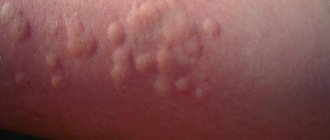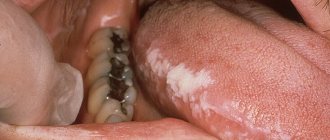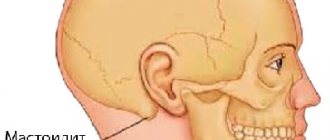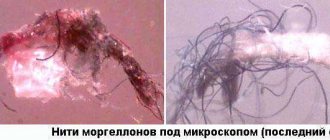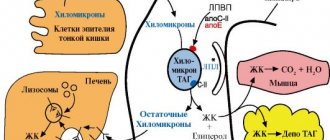Tonsillopharyngitis - main symptoms:
- Weakness
- Enlarged lymph nodes
- Fever
- Loss of appetite
- Chills
- Sore throat
- A sore throat
- Heartache
- Hoarseness of voice
- Bad breath
- Low-grade fever
- High blood pressure
- Fever
- Malaise
- Difficulty swallowing
- Indigestion
- Redness of the tonsils
- Rashes on the oral mucosa
- Purulent plaque on the tonsils
- Swelling of the tonsils
What is tonsillopharyngitis
Tonsillopharyngitis is an acute infectious disease of the pharynx and tonsils, one of the most common in the upper respiratory tract. Most often, tonsillopharyngitis is diagnosed in children aged 5 to 15 years.
In children of primary preschool age (up to 3 years), the disease is caused by a viral infection of the upper respiratory tract, and after five years, various types of bacteria are most often the causative agent. The disease also occurs in adults, but much less frequently than in children.
The clinical picture of the disease is characterized by sore throat, fever and other symptoms that are somewhat similar to sore throat. Tonsillopharyngitis treatment involves only comprehensive treatment: taking medications, physiotherapeutic procedures, and following a diet.
Despite the typical course of the disease, complications are quite serious. Advanced tonsillopharyngitis can lead to complications from the cardiovascular system. The disease is especially dangerous for pregnant women, as it can cause miscarriage.
If treatment is started promptly and correctly, complications are excluded: complete recovery occurs. Therefore, the prognosis is favorable.
There is no separate international code according to ICD-10, and the codes of the pathologies that comprise it are used for classification: J03, J35.0, J02, J31.2.
Help from traditional methods
If you use effective alternative treatment, tonsillopharyngitis in children and adults can also be quickly overcome. The most common methods used to treat this disease are inhalations. Regular potato or soda steams will not help much here, so other recipes are used.
You need to take a handful of dried chamomile flowers, pour cold water over them and bring to a boil. Then add 0.5 cups of vodka and 2 tsp to another container. liquid honey. The components need to be combined, mixed and heated slightly over low heat. Then the resulting mixture should be placed on the table, lowered over the container, covered with a towel and actively inhaled the vapors for 20 minutes. This procedure should be carried out every evening for 3-4 days.
To cure tonsillopharyngitis in children, you need to gargle regularly. There are a large number of different mixtures and decoctions for this:
- 4 tsp dried marshmallow root should be crushed and mixed with 1 tbsp. sweet clover herbs, chamomile and calendula flowers. Add 10 g of dry leaves of St. John's wort and thyme to the mixture. All components must be poured with 250 ml of boiling water. Then the drug should be infused for 20 minutes, after which it should be strained and used for gargling up to 5 times a day (for children - twice a day).
- 2 tsp Calendula flowers should be mixed with the same amount of dried chamomile. Then 20 g of eucalyptus leaves should be added to the mass. The resulting collection must be filled with water (400 ml), boiled over low heat, then left for half an hour, strained and used to wash the tonsils.
- 10 g of basil should be poured into a glass of cold water and boiled over low heat for 10-12 minutes. Then the product should infuse for half an hour, after which it should be strained through cheesecloth, add 1 tsp. vodka, a pinch of salt and mix thoroughly. Use as a gargle up to 4 times a day.
- You can also use the most common remedy based on chamomile and calendula. You need to take 20 g of dried plant flowers and brew them with 250 ml of boiled milk. To make the product suitable for children, you need to add a little honey to the solution before rinsing.
Chronic tonsillitis can be cured by taking medications orally:
- A remedy made from 4 tsp helps a lot. dried sage (ground into powder). Add 4 cloves of garlic (passed through a garlic press) to the raw material and add 1 liter of water to the ingredients. The mixture should steep for 2 hours, after which it should be kept on low heat for 15 minutes. Then the medicine needs to be cooled and strained. It is recommended to take the drug ¼ cup up to 4 times a day.
- Positive results in the treatment of the disease are demonstrated by propolis tincture. To prepare it, take 20 g of bee glue (crushed), pour 100 ml of alcohol into it and let the product brew for 3 days. After the specified time, it is recommended to take 20 drops of the medicine. It can be diluted with milk or raspberry tea.
Treatment of tonsillopharyngitis in children is recommended by gargling with carrot or beet juice. These natural preparations promote expectoration and have an antimicrobial effect.
To prevent serious complications, it is necessary to begin treatment for the disease in a timely manner. You should not self-medicate; it is better to consult a doctor immediately.
Causes of tonsillopharyngitis
The main risk group is those people who have a weakened immune system. That is why the disease most often occurs in childhood.
The causative agent of the disease can be:
- adenovirus;
- rhinovirus;
- coronavirus;
- respiratory virus;
- flu.
As for pathogenic organisms that can provoke the development of such a pathological process, the following are distinguished:
- Streptococcus species A;
- chlamydia;
- whooping cough;
- syphilis;
- gonorrhea;
- diphtheria.
With a weak immune system, the disease can also be caused by herpes, HIV, and cytomegalovirus.
Classification
Tonsillopharyngitis is divided into three main types:
- acute tonsillopharyngitis;
- chronic tonsillopharyngitis;
- streptococcal.
Acute, in turn, is divided into the following subspecies:
- bacterial;
- viral;
- fungal;
- traumatic;
- allergic.
The chronic form of this disease is also divided into subtypes:
- atrophic tonsillopharyngitis;
- catarrhal;
- hypertrophic.
The streptococcal form of the disease refers to those forms that are provoked by group A streptococcus.
Causes and risk factors
The causative agent of the disease, in the overwhelming majority, are viruses. If the immune system is weakened, the microorganism enters the body and manifests itself in the form of tonsillopharyngitis. Most often, the disease is caused by cold viruses, but there are cases when herpes, measles or rubella viruses also cause the disease. Eg:
- rhino-, adeno-, coronaviruses;
- influenza viruses;
- Epstein-Barr virus;
- group A hemolytic streptococci;
- Staphylococcus aureus;
- Pneumococcus;
- chlamydia;
- cytomegalovirus.
In rare cases, tonsillopharyngitis is caused by the viruses gonorrhea, syphilis, whooping cough, diphtheria and HIV. Sometimes a mixed origin can be diagnosed - fungal and bacterial. As a rule, with a fungal infection, the presence of Candida fungus is detected. Before 5 years of age, 90% of tonsillopharyngitis is caused by a virus, after 5 years - by bacteria.
A healthy body will easily overcome the virus that has entered the body. If the immune system is weakened, an infectious-inflammatory process will begin.
Factors leading to the development of tonsillopharyngitis. Pneumococci.
Other factors that increase the risk of disease:
- gastrointestinal pathologies;
- cardiovascular diseases;
- pulmonary or renal failure;
- problems with the endocrine system;
- metabolic disease;
- vitamin deficiency.
Environmental influences and bad habits increase the risk of illness:
- living in places with polluted air;
- alcohol and tobacco abuse;
- failure to comply with personal hygiene rules;
- ignoring the sanitary condition of the living quarters and workplace.
How can you become infected:
- through contact with a carrier of infection;
- through household items: dishes, toys, towels.
- through non-sterile medical instruments.
There are acute and chronic tonisopharyngitis. The disease can occur as an independent process or as a consequence of infectious diseases of internal organs. Treatment of tonsillopharyngitis depends on the nature of the causative agent of the disease, its type, and the condition of the patient’s body.
Symptoms of tonsillopharyngitis
The initial course of the pathology may be similar to ARVI - the patient feels weakness, a sore throat, and a slightly elevated temperature. As the infectious process worsens, the clinical picture will manifest itself in a more severe form.
Thus, tonsillopharyngitis symptoms have the following:
- sore throat, which gradually turns into pain, while it is difficult for the patient to swallow not only food, but also liquids;
- the voice becomes low and hoarse;
- general weakness, increasing malaise;
- increase in body temperature up to 39 degrees;
- bad breath;
- redness and swelling of the tonsils;
- White pus accumulates on the tonsils, and as the disease worsens, it becomes yellow-gray.
In some cases, the clinical picture may be supplemented by general symptoms:
- swollen lymph nodes;
- attacks of chills and fever;
- rashes in the oral cavity, stomatitis;
- disorders of the digestive tract;
- deterioration of appetite (in children this is an almost complete refusal to eat).
An exacerbation of the disease, as a rule, is supplemented by heart pain and increased blood pressure.
Symptoms of tonsillopharyngitis photo.
If you have such symptoms, the most rational decision would be to consult a doctor rather than carry out treatment at your own discretion. This is especially dangerous in childhood, since untreated tonsillopharyngitis can lead to serious complications in the future.
Possible complications
The most common complications of the disease include:
- laryngitis,
- bacterial endocarditis,
- mastoiditis,
- tracheitis,
- meningitis,
- streptococcal myositis,
- phlegmon of the neck,
- mediastinitis,
- streptococcal toxic shock syndrome,
- fasciitis.
These complications occur in a small number of patients. As a rule, they are accompanied by multiorgan failure, which can lead to death.
Less dangerous are purulent complications, for example, rheumatic fever or acute glomerulonephritis.
Diagnostics
As a rule, making a diagnosis does not cause difficulties, since the pathology also has external signs. However, for effective treatment it is necessary to carry out diagnostics, which will make it possible to accurately establish the diagnosis itself and determine the causative agent of the pathological process, thereby selecting the most effective treatment tactics.
The diagnostic program includes activities such as:
- examination of the patient, collection of anamnesis;
- examination of the pharynx using a pharyngoscope;
- endoscopy of the pharynx;
- CT scan;
- general and biochemical blood test;
- blood test to determine sensitivity to antibiotics;
- bacteriological examination of a throat smear.
In some cases, standard laboratory tests are replaced with rapid diagnostic tests to detect streptococcal infections.
Granular pharyngitis: symptoms and diagnosis
When examining patients with pharyngitis, swelling and thickening of the uvula and soft palate will be observed. The entire back of the throat will be irritated and swollen. Lymphatic and blood vessels will dilate, creating a specific branching pattern.
The mucous membranes are hyperemic and bright red lymphoid formations are visualized on them.
A large amount of mucous or purulent secretion gradually forms in the pharynx and then begins to accumulate. Because of this, the patient has to constantly cough up or swallow accumulated secretions. Against this background, the state of health sharply worsens.
General symptoms of granular pharyngitis:
- Foreign body sensation;
- Pain when swallowing;
- Constant tickling;
- Dry cough;
- Loss of voice.
To make a diagnosis, the doctor must examine the patient and collect anamnesis. If necessary, a virological or bacteriological examination may be prescribed. It is important to differentiate pharyngitis from tonsillitis (tonsillitis).
Treatment of tonsillopharyngitis
Treatment is carried out through conservative measures, but only with an integrated approach - taking medications is combined with diet and physiotherapeutic procedures. Treatment with folk remedies as an addition to the main course is not excluded.
Drug therapy includes taking the following drugs:
- antiviral;
- anti-inflammatory;
- antipyretics;
- antibiotics;
- immunomodulatory;
- painkillers.
It should be noted that medications are prescribed not only orally, but also locally (in the form of sprays or gargling solutions). The latter help to eliminate unpleasant symptoms much faster.
Folk remedies can also be used, but only after consultation with your doctor. A decoction of chamomile and sage is used to gargle.
Sage photo.
During the period of treatment you must follow a special diet.
The diet for this disease should be based on the following recommendations:
- exclusion of spicy, sour, too salty foods, which can lead to irritation of the mucous membranes;
- food should be consumed only warm;
- The consistency of the dishes is liquid, puree-like.
In addition, you need to maintain a drinking regime - drink at least two liters of warm liquid per day. This volume does not include liquid dishes.
Provided you follow the treatment prescribed by your doctor, recovery occurs within 1.5-2 weeks. In this case, complications can be avoided.
Treatment of chronic granulosa pharyngitis
The course of treatment and medications will depend on the causes and nature of the disease. Taking into account all factors, the doctor will prescribe therapy.
Drug treatment of granular pharyngitis:
- Regular rinsing with solutions that include sodium chloride and sea salt;
- To relieve edema, Protargol, tannin and silver nitrate are used;
- To stimulate the immune system, vitamin preparations are prescribed;
- In the presence of a bacterial infection, bactericidal agents are used;
- If a fungal infection is suspected, Stomatofit is prescribed;
- Inhalations with Acetylcysteine are also useful.
If large granules are formed, cauterization with liquid nitrogen, silver or laser is prescribed. In case of severe pain syndrome, which is accompanied by swelling, hydrocortisone is added to inhalations.
Physical procedures have shown high effectiveness in the treatment of pharyngitis.
Thanks to them, inflammation quickly goes away and the mucous membranes of the pharynx are better restored. The most widely used are UHF, electrophoresis, radio wave shading, darsonvalization and applications with therapeutic mud.
They are also treated with folk remedies using:
- Sage flowers;
- Thyme;
- Melissa;
- Eucalyptus leaves.
Based on these medicines, a collection is made, which is brewed and gargled. For the decoction, take one tablespoon per glass of water. It is advisable to gargle every hour.
Prevention
As a preventive measure, you should follow some rules:
- avoid hypothermia;
- take vitamins, eat right and take other measures to strengthen the immune system;
- Children should be vaccinated against infectious diseases.
Tonsillopharyngitis cannot be classified as a life-threatening disease, but if treatment is not started in a timely manner, there is a high probability of developing irreversible pathological processes.
Stages
- Acute: primary infection, always occurring in an acute form. With proper therapy, it is completely curable.
- Chronic: a sluggish advanced form of acute tonsillopharyngitis, prone to relapses. During therapy, only the symptoms are suppressed; relapses cannot be completely prevented.



